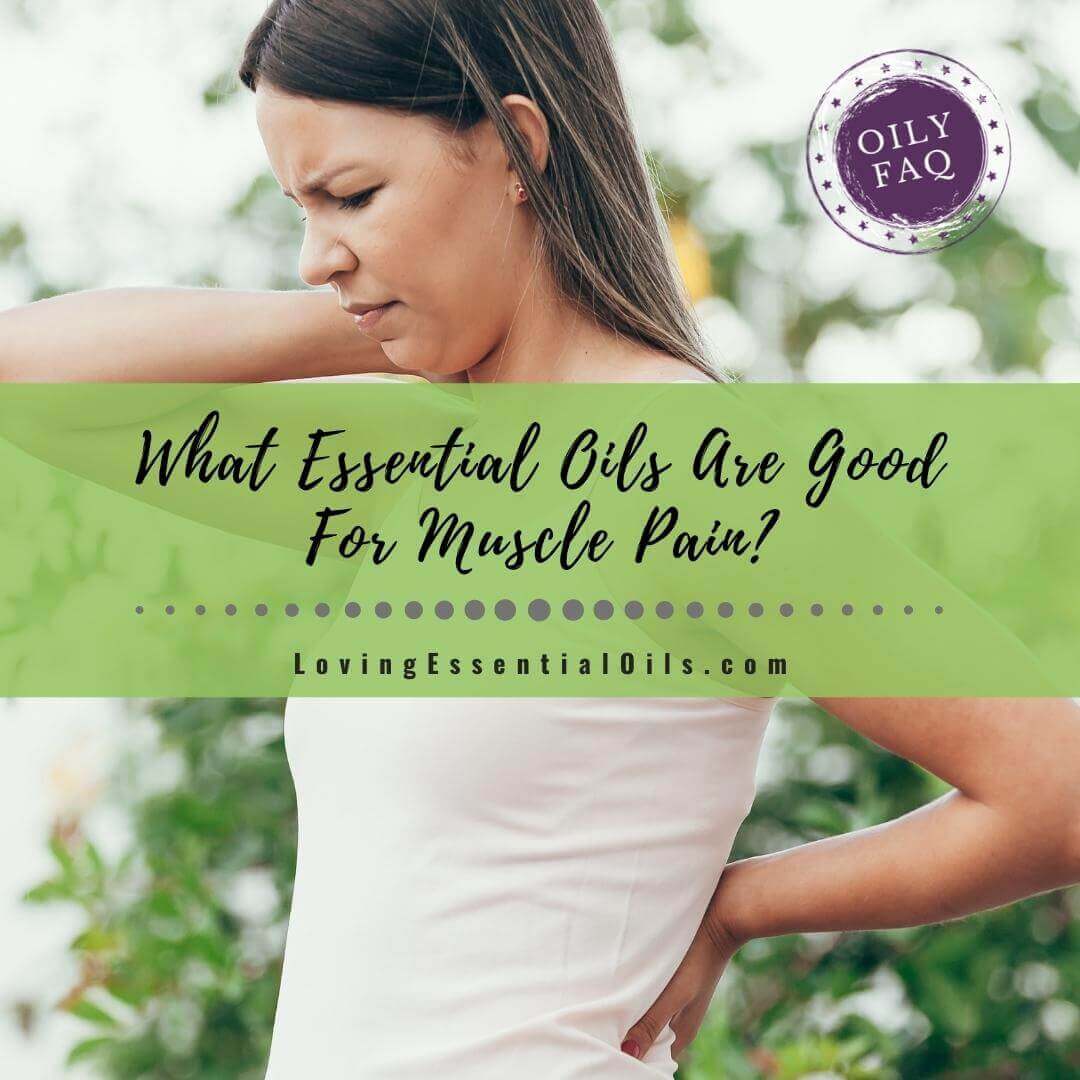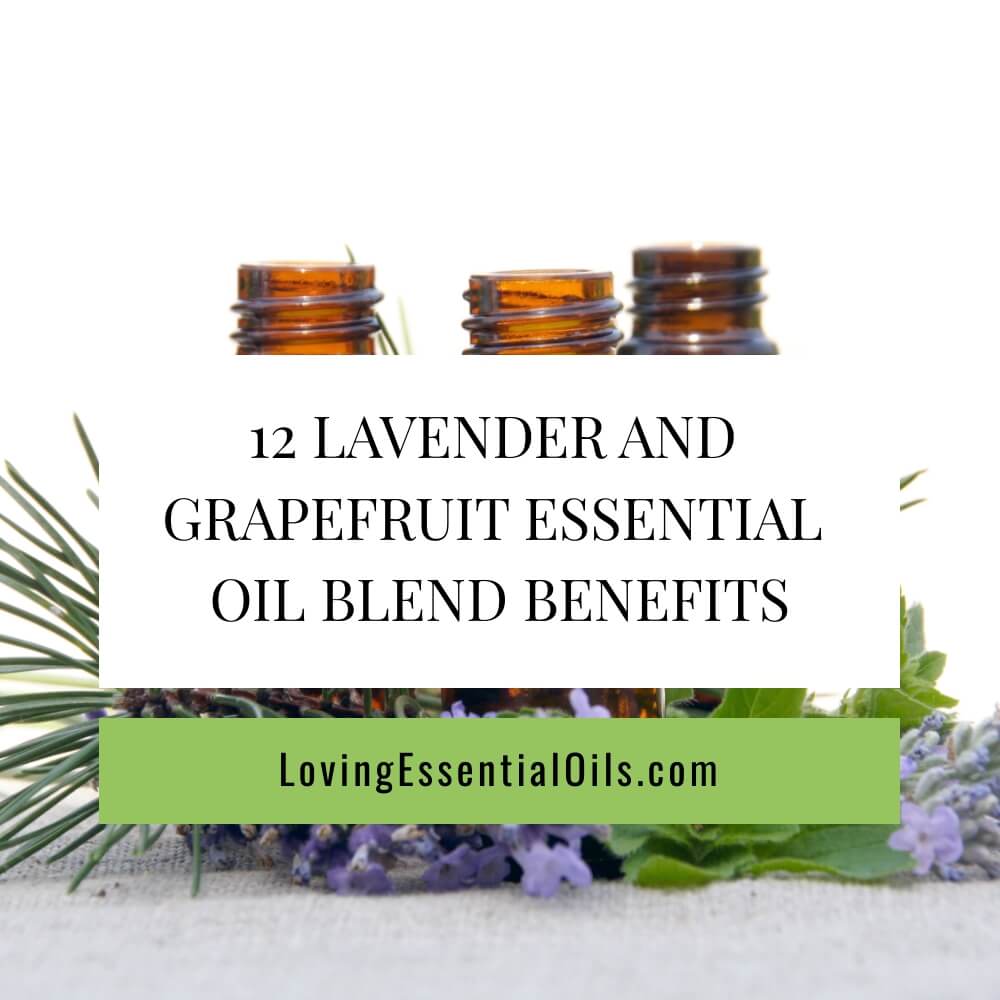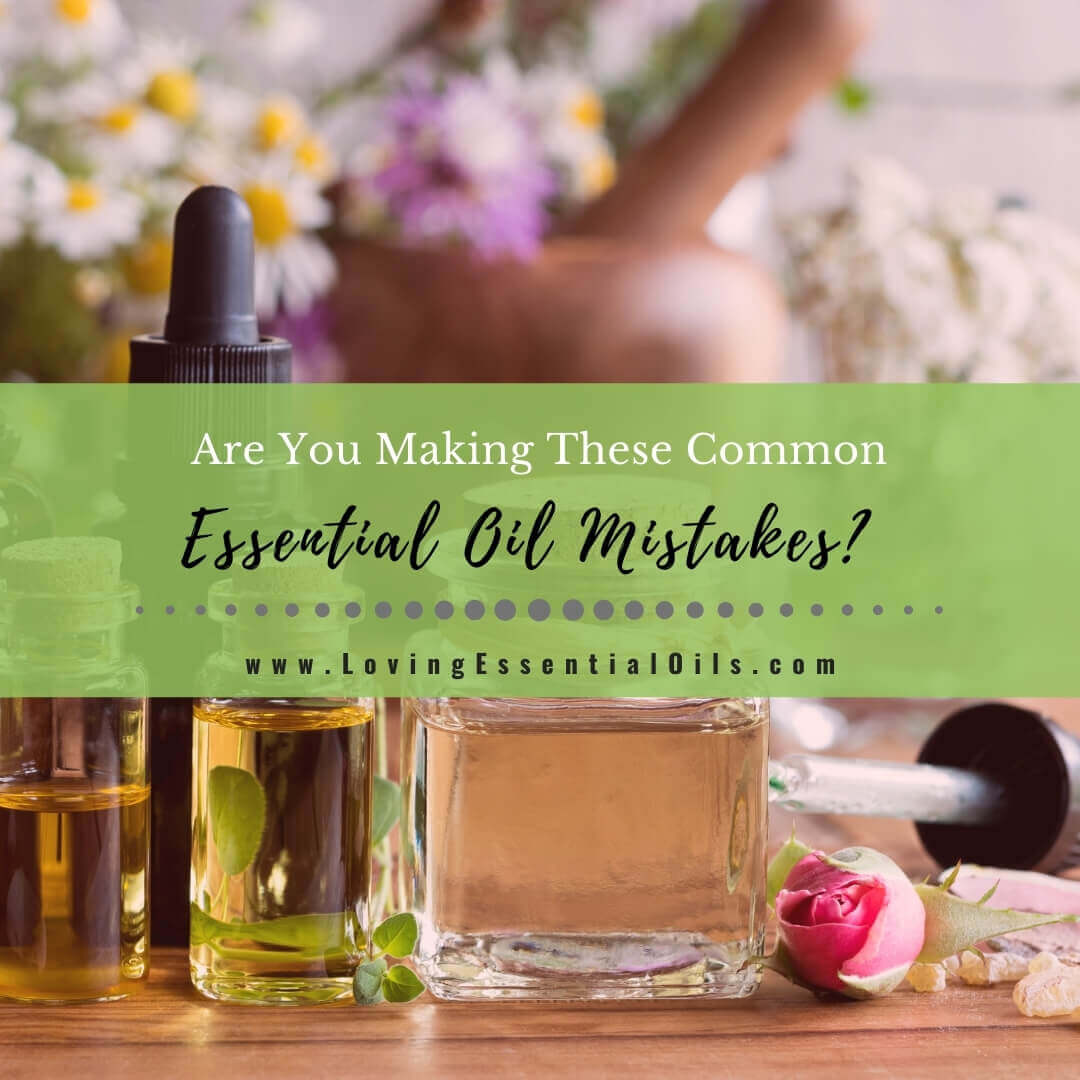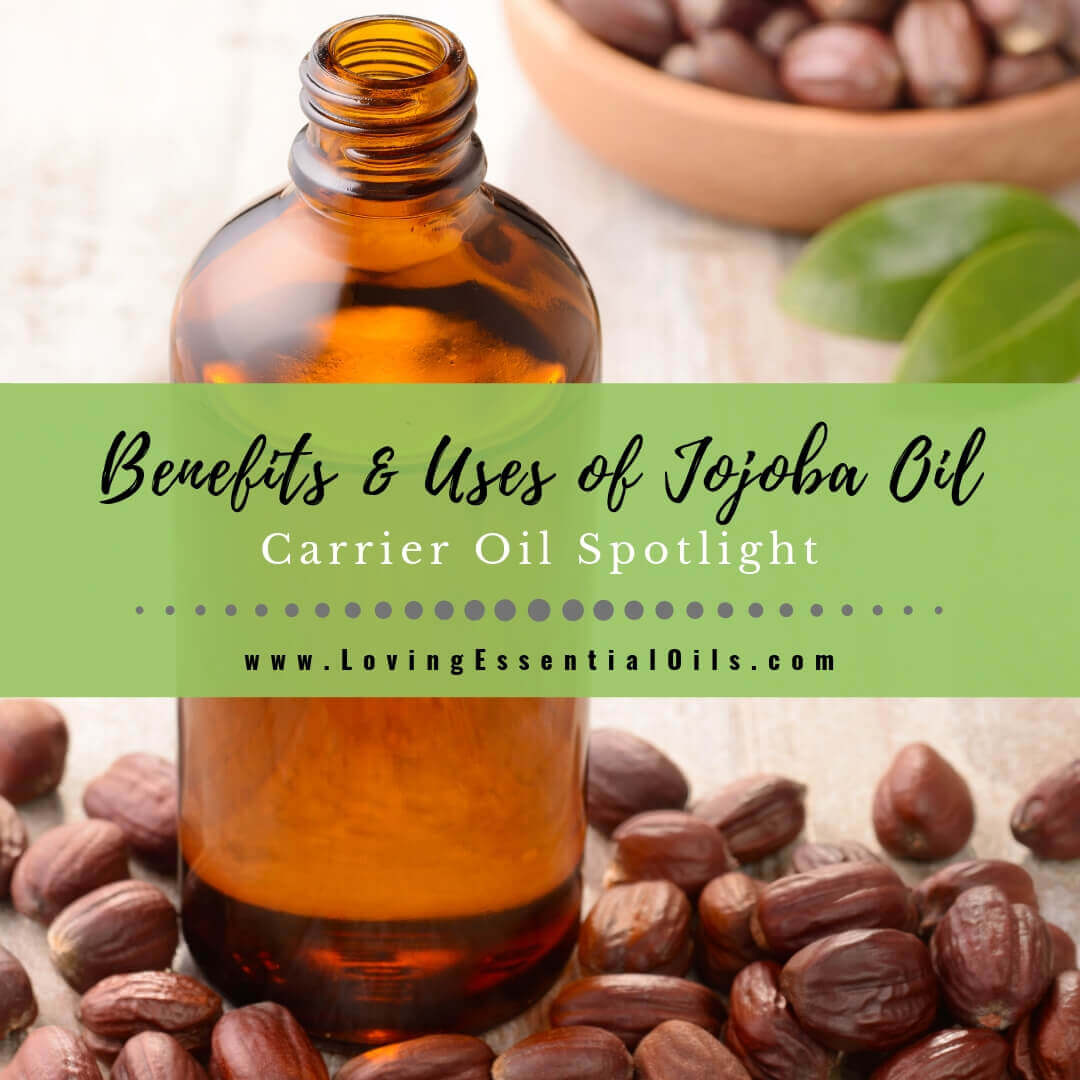Table of Contents
What essential oils are good for muscle pain? LOTS! That's great news because it gives you many options. Read about the top oils and how they are used in DIY recipes and essential oil blends for muscle pain at home.
Essential oils are a form of concentrated plant material that can boost your health and wellness. These natural oils have many different benefits for both the body and mind. Essential oils can also be used for several medicinal purposes. The benefits you receive from essential oils depend on the type of oil you use.
What is The Science Behind Essential Oils For Muscle Pain?
Various studies on essential oils and their benefits have been published over the last decade. In studying the general uses of essential oils, scientists have found that aromatic and topical use of essential oils can help reduce pain in the body.
Some studies have even found that specific essential oils can reduce muscle pain. I’ll discuss this in the next section of the article, though.
However, specific studies on muscle pain and essential oils are not as numerous. Still, plenty of evidence suggests that essential oils are helpful for muscle discomfort and pain reduction!
What Essential Oils Are Good For Muscle Pain?
Many essential oils can help with pain and muscle discomfort. Here, I’ll talk about essential oils that can reduce muscle pain. These are some of the most well-known and well-studied essential oils related to muscle pain.
In short, these oils can produce pain-relieving effects on the muscles and other areas of the body. The following oils can help reduce muscle discomfort and eliminate any lingering pain.
1. Peppermint Essential Oil
Peppermint essential oil is a great mood and memory booster, but did you know it can also benefit muscle pain? In a study published in the Journal of Prolotherapy, researchers studied several essential oils and their effects on pain.
Peppermint essential oil was found to positively affect pain in the body. Muscle pain was not specifically studied. However, the scientists in the study found that essential oils like peppermint could be used for many different health ailments and conditions related to pain, including pain in the muscles.
2. Rosemary Essential Oil
Rosemary essential oil can help stimulate the muscles and other areas of the body. It is great for muscle sprains and soreness and can also reduce pain. This is due to its anti-inflammatory effects, which help diminish tension and musculoskeletal pain.
In a study in the Journal of Nursing and Midwifery, researchers found that rosemary successfully reduced muscular pain and other types of pain in patients.
Topical use of the oil was particularly successful in helping with muscle pain, but aromatic use of rosemary can also help.
3. Black Pepper Essential Oil
Black pepper essential oil is used in many massage oils. This oil is great at reducing pain and inflammation in many areas of the body. In addition, when rubbed into the skin, black pepper essential oil creates a nice warming effect.
This is especially good when you are dealing with muscle soreness and pain! But what do scientists have to say about this oil? A study in the Journal of Alternative and Complementary Medicine studied the effects of black pepper essential oil on muscle pain.
Though the researchers only studied muscle pain located in the neck, the results were promising. The pain was reduced considerably when applied to the trapezius muscle and other nearby neck muscles.
These results were produced using a cream infused with essential oil, and scientists are hopeful that black pepper essential oil could further help with muscle-related pain.
4. Chamomile Essential Oil
Chamomile is a soothing essential oil that can aid with sleep and relaxation and reduce muscle pain. Because of its anti-inflammatory properties and its ability to stop muscle spasms, chamomile is the perfect essential oil for muscle pain.
A systematic review of essential oils done in a Biomedicine science journal went over the effects of chamomile and several other essential oils. It was found that chamomile essential oil can help with muscle soreness and pain in an effective way.
5. Lavender Essential Oil
Lavender essential oil is well known for its ability to reduce pain in the body in several ways. Both topical use and aromatic use of lavender oil can help minimize feelings of discomfort.
In a clinical study, lavender essential oil was found to reduce muscle pain and soreness specifically. It can also reduce headache pain, which could lead to further relief from back and muscle pain (Babar, 2015).
6. Eucalyptus Essential Oil
This essential oil has a nice cooling effect on the muscles which can help with pain and soreness. A meta-analysis was done on eucalyptus, and several other essential oils. Researchers found that muscle pain can be reduced when eucalyptus is topically or aromatically used.
7. Copaiba Essential Oil
Copaiba essential oil is a natural pain reliever for joint and muscle pain. One study found it to be as effective as ibuprofen for relieving arthritis symptoms, making it a great alternative to over the counter drugs.
In addition, copaiba has been shown to reduce inflammation and relieve menstrual cramps.
8. Lemongrass Essential Oil
Lemongrass essential oil is a great option for those who suffer from chronic pain, like rheumatoid arthritis. Lemongrass can be used for aromatherapy or topical application to help relieve symptoms of pain and inflammation.
After diluting, rub the oil mixture on your temples to alleviate headaches and migraines, or place it on your chest for bronchitis relief. You can also add it into a foot bath with epsom salts to address aches and pains in muscles and joints.
How to Use Essential Oils For Muscle Pain Relief
There are many creative and effective ways to use essential oils for muscle pain. In this portion of the article, I will discuss some simple yet useful ways to reduce muscle pain and soreness. These essential oils can really help you relax, unwind, and loosen from any pain.
Apply Your Essential Oil Topically in Targeted Areas
You can use essential oils to target specific areas of pain. Not everyone will be interested in doing a full-body massage on themselves with their massage oil. Instead, if you want, you can apply some of your essential oil to a specific body region.
But how can you apply essential oils for pain relief? It is best to use a carrier oil to apply the oils to the skin. Carrier oils help dilute the oils and keep the skin safe.
Most essential oils are safe for topical use, but you should use a carrier oil to help prevent major breakouts or skin flare-ups. A carrier oil can also help the essential oil sink into your skin more deeply and make application easier.
It also helps your skin absorb the essential oil at a higher rate. This is crucial when you are trying to reduce muscle pain. You will want as much essential oil absorbed into your skin as possible. This way, you get the most pain-reducing qualities from your oils!
Apply your oils directly to the area of pain and let it sink into the skin.
Soak in A Warm Bath With Essential Oils
Essential oils don’t have to be directly applied to the skin to create a muscle healing effect. If you don’t have someone to massage the oil into your skin directly, you can also use essential oils in your bath.
You will also need a carrier oil for this method. Try mixing a few drops of your chosen essential oil with a carrier oil, castile soap, or vegetable glycerin and then adding it to your bathwater.
If desired, you can mix a few muscle pain essential oils into your bathwater. This will make your bath time extra relaxing and pleasing to your senses.
Word of caution: Peppermint and black pepper essential oils may be too strong for your sensitive parts when bathing.
Use A Compress With Essential Oils
Compresses can reduce inflammation and discomfort with muscle pain and other types of bodily pain. Still, you don’t just have to dip your compress in water alone. You can actually include a few drops of essential oil for muscle pain. This way, you get even better results!
Use a Diffuser With Your Essential Oil
Finally, a diffuser can also be used with essential oils for muscle pain. Several studies have indicated that smelling essential oils can help reduce discomfort, including muscle tension, soreness, and pain. Inhaling some of the above-mentioned essential oils can significantly reduce your pain levels. So, give this option a try, as well!
Read More > Diffusing Essential Oils
DIY Essential Oil Blends for Muscle Pain
Essential oil blends for muscle pain are a great way to relax your muscles, especially when you feel discomfort. You only need a few drops of essential oil. Check out these essential oil recipes for muscle pain.
Cooling Compress for Pain Relief
Applying an ice-cold compress with healing oils can relieve sore and painful muscles. Cooling compresses also work well for bruises, insect stings and bites, headaches, swelling, and other injuries.
- 3 drops Lemongrass Oil
- 3 drops Lavender Oil
- 1 teaspoon jojoba oil
- Washcloth or towel
- Bowl with cold water
- Ice Cubes
Directions: Fill the bowl with cold water and ice cubes. Blend 1 teaspoon of jojoba oil and essential oil drops together. Add oil blend to the bowl of water and ice. Soak the washcloth in the bowl to make a cooling compress. Remove the washcloth and squeeze out the excess water. Place a compress on the area of discomfort. Leave in place until it reaches body temperature.
Repeat steps #3 & #4 a few times as needed.
DIY Pain Relief Massage Oil Blend
Massage oils are one of the most straightforward ways to reduce muscle pain. With only a few key ingredients, you can easily create essential oil massage oil from the comfort of your home. This way, you can make a powerful massage oil that smells great!
- 12 drops of Lavender essential oil
- 8 drops Rosemary essential oil
- 4 drops Black Pepper essential oil
- 1/4 cup Sweet Almond Oil
- 2 oz Glass Bottle (dropper or pump bottle)
Directions: Blend all ingredients together in a glass bottle. To use, rub the massage oil into the areas of discomfort and allow it to absorb into the skin. 2% dilution.
Muscle Tension Relief Roller Blend
Let this blend of pain relief oils soothe the stress and tension in your muscles!
- 5 drops Copaiba essential oil
- 3 drops Lavender essential oil
- 2 drops Roman Chamomile essential oil
- 2 teaspoons Jojoba Oil
- 10 ml Glass Roller Bottle
Directions: Add oils to the rollerball bottle and fill the bottle with jojoba oil (or your favorite carrier oil). To use, roll on tense muscles for relief. 5% dilution.
Pain Relief Diffuser Blend
Peppermint oil is cooling and comforting. This pain relief blend is for the diffuser. Its scent is calming and helps reduce stress, decreasing tension and discomfort.
- 3 drops Peppermint essential oil
- 2 drops Eucalyptus essential oil
- 2 drops Bergamot essential oil
Directions: Add essential oils to your aromatherapy diffuser with the required water for your machine.
Frequently Asked Questions about Pain Relief Essential Oil Blends
Here are some of the FAQs on muscle relief essential oil blends:
Can I use aromatherapy for sore muscles?
Yes, aromatherapy can be used for sore muscles. Essential oils like lavender, eucalyptus, and peppermint have soothing, anti-inflammatory properties that can help relax and relieve muscle tension.
You can mix a few drops of these oils with carrier oils like coconut or almond oil and massage them onto the affected area for relief.
Is rosemary oil good for muscle recovery?
Rosemary essential oil has been reported to have anti-inflammatory properties, making it potentially beneficial for muscle recovery. Its analgesic effect is thought to help reduce muscle soreness and pain associated with physical activity.
The oil's ability to increase circulation might also aid recovery by promoting muscle nutrient delivery and eliminating waste products.
What does analgesic properties mean?
Essential oils' analgesic properties refer to their ability to relieve pain and discomfort. These oils are known to have a soothing effect on the body and can relieve headaches, muscle aches, joint pain, and other sources of bodily discomfort.
When used topically or inhaled, analgesic essential oils such as lavender, peppermint, and eucalyptus can help reduce pain sensations and promote a sense of relief and relaxation.
Is ginger essential oil good for blood circulation?
Ginger essential oil has been known to improve blood circulation due to its warming properties and ability to dilate blood vessels. Its active compounds, such as gingerol and zingerone, help stimulate blood flow.
Regularly using ginger root essential oil through massages or aromatherapy may positively affect blood circulation and overall health.
Can I use essential oils for an exercise injury?
Yes, essential oils can be beneficial for exercise injuries. When applied topically, oils like peppermint or eucalyptus can help relieve muscle soreness and inflammation.
However, it is important to consult with a healthcare professional before using essential oils as a primary treatment method for any injury, as they may not be suitable for everyone or all types of injuries.
Share on Pinterest








